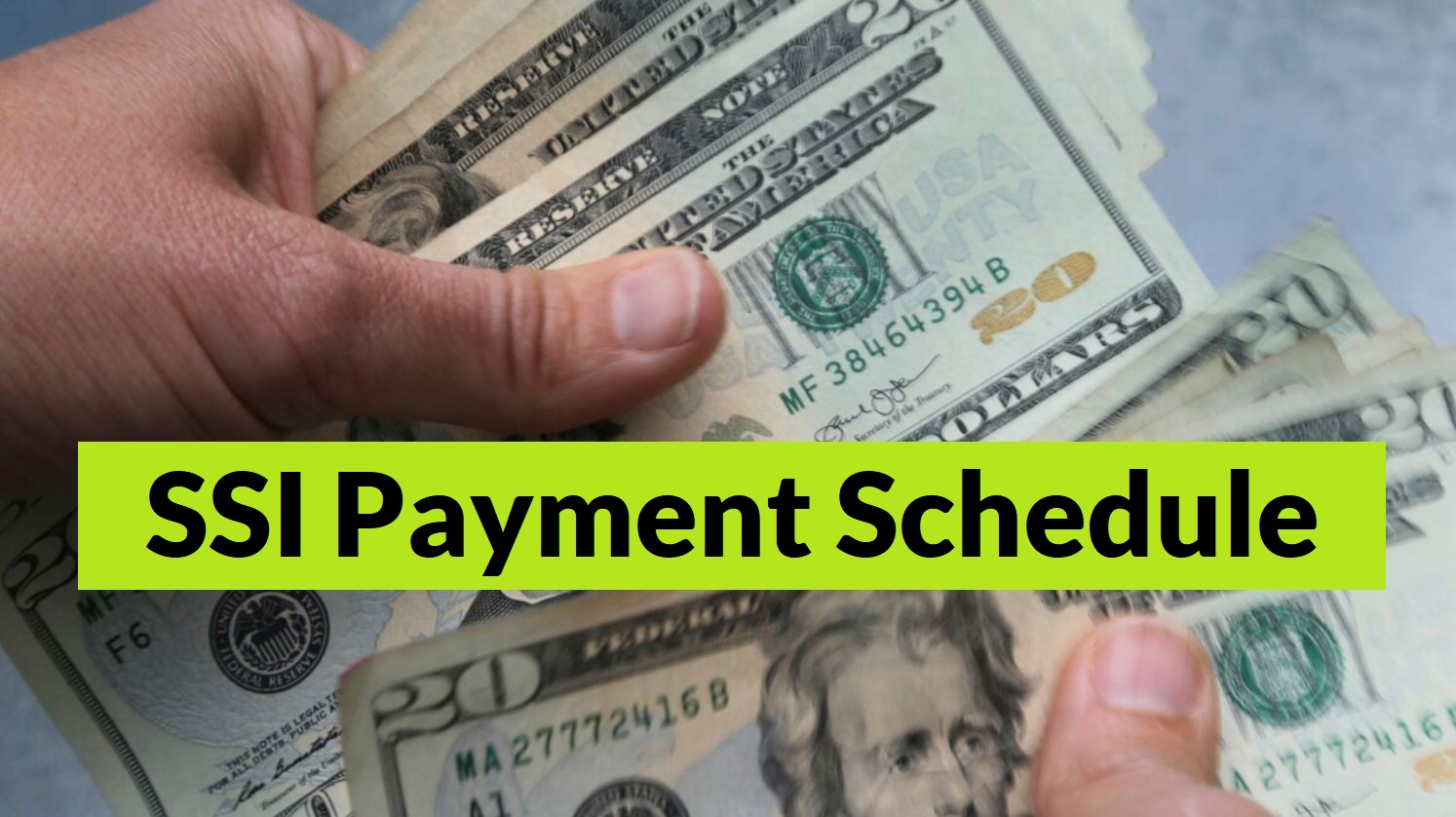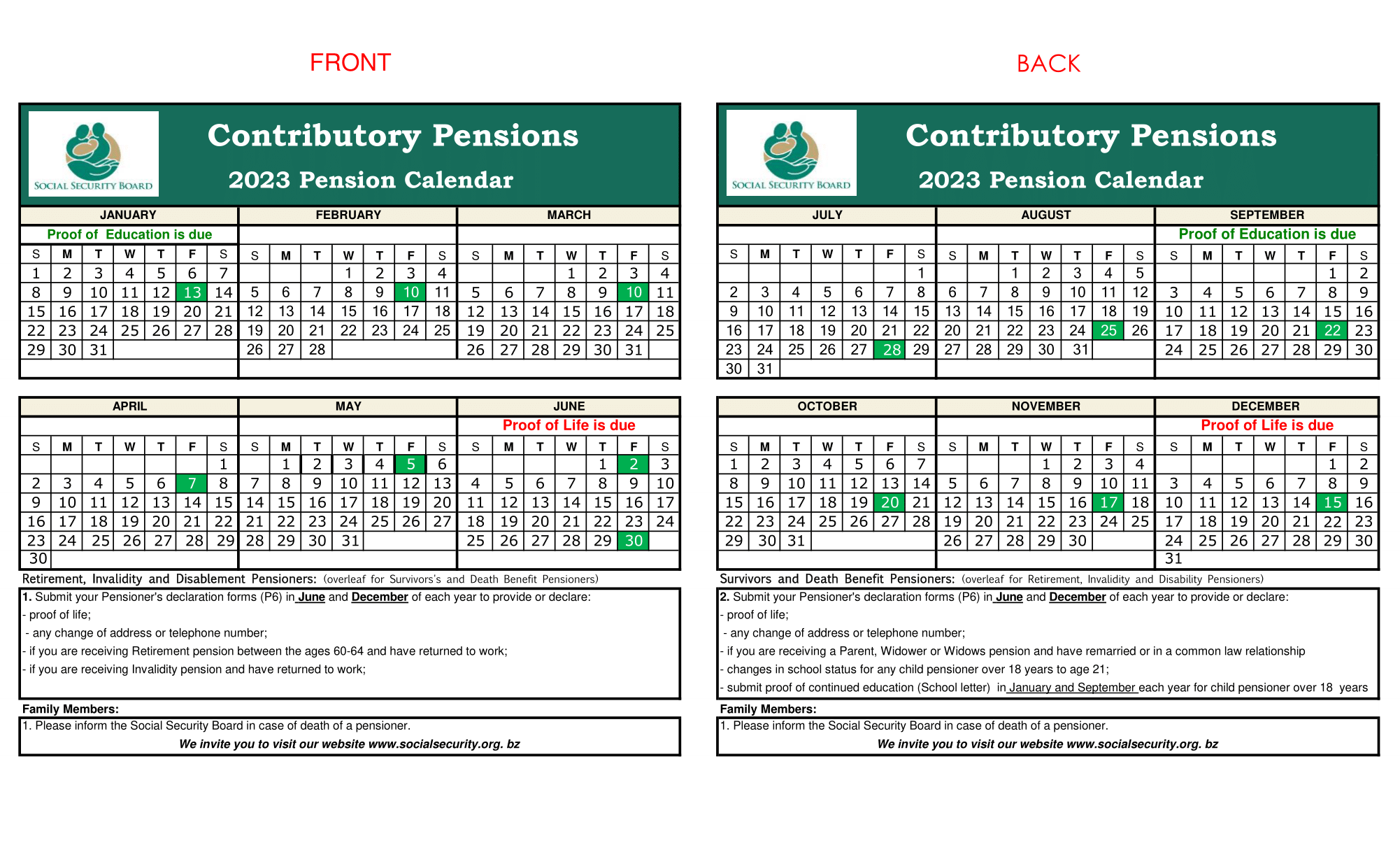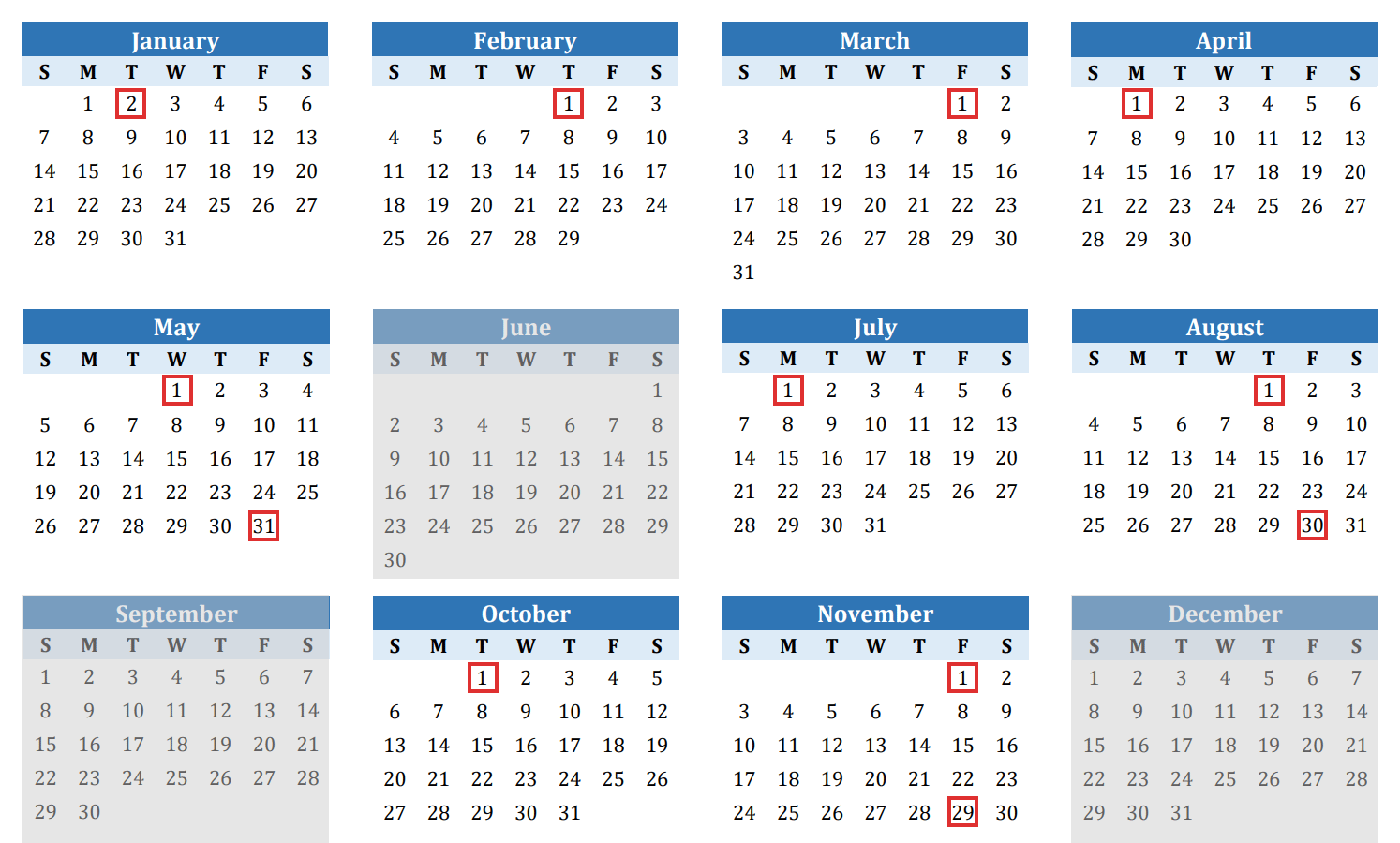Navigating Your SSI Payment Schedule: Dates, Details, And Deductions
Understanding your Supplemental Security Income (SSI) payment schedule is not just about knowing when money arrives; it's about managing your finances, planning for essential expenses, and ensuring you receive the full benefits you're entitled to. For millions of Americans, SSI provides a crucial financial lifeline, but the intricacies of its payment distribution can sometimes be a source of confusion. From specific payment dates tied to your birth month to how annual cost-of-living adjustments (COLAs) and Medicare premiums affect your monthly sum, having a clear grasp of the SSI payment schedule is paramount for financial stability.
This comprehensive guide aims to demystify the process, offering clear, actionable insights into how and when your SSI payments are disbursed. We'll delve into the factors that determine your payment day, explain the impact of various deductions and adjustments, and address common misconceptions, ensuring you have all the information you need to confidently manage your benefits. By the end of this article, you'll be well-equipped to understand every aspect of your SSI payment schedule, empowering you to make informed decisions about your financial future.
Table of Contents
- Understanding Your SSI Payments: The Basics
- Decoding the SSI Payment Schedule: When to Expect Your Funds
- COLA and Your SSI Payment: What the Increase Means
- Medicare Premiums and Your SSI: Automatic Deductions Explained
- Stimulus Checks and SSI Beneficiaries: A Look Back and Forward
- Managing Your SSI Benefits: Online and By Phone
- Understanding Full Retirement Age and Its Nuances (Social Security vs. SSI)
- Securing Your Financial Future with SSI
Understanding Your SSI Payments: The Basics
Supplemental Security Income (SSI) is a federal program funded by general tax revenues (not Social Security taxes) that provides monthly payments to adults and children with a disability or blindness who have income and resources below specific financial limits. It also provides payments to people aged 65 and older without disabilities who meet the financial limits. Unlike Social Security benefits, which are earned through work history, SSI is a needs-based program designed to help meet basic needs for food, clothing, and shelter. Given its critical role in supporting vulnerable populations, understanding the nuances of the SSI payment schedule is fundamental for recipients to manage their daily lives and long-term financial planning.
The Social Security Administration (SSA) manages the SSI program, just as it does Social Security retirement, disability, and survivor benefits. While both programs are administered by the same agency, their funding mechanisms and eligibility criteria differ significantly. This distinction is important when discussing payment schedules, as certain rules and adjustments, such as Cost-of-Living Adjustments (COLAs) and Medicare premium deductions, can apply broadly across various benefits, but the underlying payment structure for SSI often has its own specific rhythm. Knowing this helps clarify why your SSI payment schedule might operate differently from, say, a friend's Social Security retirement benefit.
Decoding the SSI Payment Schedule: When to Expect Your Funds
For many SSI recipients, the question of "When will I get my payment?" is a recurring one, often accompanied by the need to budget meticulously. The good news is that the SSI payment schedule generally follows a predictable pattern, designed to ensure timely delivery of funds. However, there are specific factors that can influence the exact day your payment arrives, primarily your birth date and the occurrence of federal holidays. These factors are crucial for accurately predicting when your funds will be available, allowing for better financial management.
The Wednesday Rule: Your Birthday Matters
One of the most common pieces of information regarding Social Security and SSI payments is that **most recipients get their social security benefits on a Wednesday — but which Wednesday depends on your birthday.** This rule primarily applies to Social Security benefits (retirement, disability, survivor benefits) and is based on the day of the month you were born. For those receiving these specific Social Security benefits:
- I Am Han Sanqian Chapter 121
- Anne Hathaway Nude
- Indian Uncut Web Series
- Calico Cat
- Camilla Araujo Onlyfans Videos
- If your birthday falls between the 1st and 10th of the month, your payment is generally sent on the second Wednesday of the month.
- If your birthday falls between the 11th and 20th of the month, your payment is generally sent on the third Wednesday of the month.
- If your birthday falls between the 21st and 31st of the month, your payment is generally sent on the fourth Wednesday of the month.
However, it's crucial to note a key distinction for the SSI payment schedule. For SSI recipients specifically, payments are generally issued on the first day of each month. This means that if you receive only SSI, your payment date is usually fixed. If the first day of the month falls on a Saturday, Sunday, or federal holiday, the payment will be issued on the preceding business day. This ensures that beneficiaries receive their funds slightly early rather than having to wait. This distinction is vital for accurately predicting your SSI payment schedule and avoiding any confusion with other Social Security benefit types. **Here’s how the payment cycle works** for SSI: consistently on the 1st, unless holidays or weekends necessitate an earlier deposit.
Holidays and Weekends: Adjustments to Your Schedule
Federal holidays and weekends play a significant role in adjusting the SSI payment schedule. As mentioned, if your payment date (typically the 1st of the month for SSI) falls on a weekend or a federal holiday, the payment will be moved to the last business day before that date. This is a standard practice by the Social Security Administration to prevent delays and ensure beneficiaries have access to their funds without interruption due to non-business days. For instance, if January 1st falls on a Saturday, your payment for January would typically arrive on December 31st of the previous year.
The **Social Security Administration (SSA) field offices observe 11 annual holiday closures**, which directly impact administrative operations and can indirectly affect payment processing if manual intervention were ever needed. However, the automated payment system is designed to account for these closures in advance, meaning your direct deposit or check mailing is usually adjusted automatically. It's always a good idea to check the SSA's official payment calendar, available on their website, for precise dates, especially around major holidays like Christmas, New Year's Day, or Thanksgiving. This proactive approach helps recipients plan their finances accurately, ensuring they are aware of any shifts in their SSI payment schedule.
COLA and Your SSI Payment: What the Increase Means
One of the most anticipated annual announcements for beneficiaries is the Cost-of-Living Adjustment (COLA). This adjustment is designed to help Social Security and SSI benefits keep pace with inflation, ensuring that the purchasing power of your benefits doesn't erode over time due to rising costs of goods and services. **The COLA is applied to all Social Security payments — survivor benefits, family benefits and disability benefits, as well as retirement benefits — and to supplemental security.** This means that SSI recipients also directly benefit from the COLA, seeing an increase in their monthly payment to help offset rising costs of living. It's a critical component in maintaining the financial stability of beneficiaries.
The Social Security Administration (SSA) typically announces the COLA for the upcoming year in October, based on inflation data from the third quarter. For instance, the data indicates that **Social Security beneficiaries will get a 2.5 percent increase in their monthly payments next year, the Social Security Administration (SSA) announced Oct 10, in line with analysts' projections, and Medicare confirmed Nov**. This 2.5% increase would apply to eligible SSI payments as well, effective starting in January of the new year. It's vital for recipients to factor this increase into their budget planning, as it can modestly yet significantly impact their overall financial outlook and their monthly SSI payment schedule. This adjustment helps ensure that the real value of your benefits is maintained, allowing you to continue meeting your basic needs despite economic fluctuations.
Medicare Premiums and Your SSI: Automatic Deductions Explained
For many beneficiaries, especially those who are also enrolled in Medicare, understanding how Medicare premiums interact with their benefits is crucial for managing their overall income. **The Social Security Administration will automatically deduct the Medicare premium from your monthly benefit if you are enrolled in Medicare Part B.** This is a common practice designed to simplify the payment process for beneficiaries and ensure timely premium payments to Medicare, reducing the administrative burden on individuals.
While this deduction primarily affects Social Security retirement and disability benefits, it's important for SSI recipients to be aware of it, especially if they transition to receiving Social Security benefits later or have dual eligibility (receiving both SSI and Social Security). SSI itself is a needs-based program, and while it doesn't directly pay for Medicare premiums, the overall financial picture of a recipient, including any other Social Security benefits they might receive, can be impacted by these deductions. For example, if you receive a small Social Security retirement benefit in addition to SSI, your Medicare Part B premium would likely be deducted from your Social Security payment first. It's always advisable to review your annual benefit statement from the SSA, which details your gross benefit amount, any deductions (like Medicare Part B premiums), and your net payment, giving you a clear picture of your actual available funds and how they relate to your SSI payment schedule.
Stimulus Checks and SSI Beneficiaries: A Look Back and Forward
During periods of economic downturn or national crisis, the government may authorize direct payments, often referred to as stimulus checks, to provide financial relief to citizens. These payments are distinct from regular ongoing benefits like SSI but can significantly impact a beneficiary's financial situation. SSI beneficiaries, like other vulnerable populations, have often been included in these relief efforts, highlighting the government's recognition of their financial needs. It's important to differentiate between regular SSI payments and these one-time or temporary stimulus payments to avoid confusion regarding your ongoing SSI payment schedule.
Past Stimulus Rounds: 2020 and 2021
The early 2020s saw unprecedented direct financial aid provided to millions of Americans. There was **a recap of first and second rounds of stimulus checks authorized in 2020 before a third round of $1,400 stimulus checks became law March 11, 2021.** Many SSI recipients automatically received these payments, as the IRS often used existing federal benefit payment information from the Social Security Administration to distribute the funds efficiently. These payments were separate from the regular SSI payment schedule and were designed as additional, temporary support, not as an increase to the ongoing benefit amount. Understanding the distinction is vital to avoid confusion when monitoring your regular SSI payment schedule and to properly account for these extraordinary payments in your personal finances.
Debunking Misinformation: The Fourth Stimulus Check Myth
In the wake of past stimulus efforts, misinformation often proliferates, particularly online. **Website headlines, videos and social media posts continue to spread misinformation about a supposed fourth stimulus check headed to older Americans or people with disabilities.** It's crucial for SSI beneficiaries to rely only on official sources like the Social Security Administration (SSA) or the Internal Revenue Service (IRS) for accurate information regarding any future stimulus payments. Unverified claims can lead to unnecessary anxiety, false expectations, and even expose individuals to scams. As of the latest official announcements, there has been no widespread authorization for a fourth federal stimulus check. Always verify information through official government websites or reputable news organizations to ensure you have accurate details about any potential future payments that could impact your financial planning alongside your regular SSI payment schedule. Trusting only verified sources is paramount for your financial security.
Managing Your SSI Benefits: Online and By Phone
In today's digital age, accessing information about your benefits and managing your account has become significantly easier and more convenient. While **Social Security Administration (SSA) field offices observe 11 annual holiday closures**, and may have limited in-person services, **many services are available online or by phone those days.** This flexibility is particularly beneficial for SSI recipients who may face mobility challenges, live in remote areas, or simply prefer the convenience of managing their affairs from home.
The SSA's official website, SSA.gov, is a robust resource where you can create a "my Social Security" account. Through this secure account, you can check your benefit verification letter, review your earnings record, and get estimates of future benefits. While direct real-time tracking of your next SSI payment schedule might not be as granular as a bank statement, you can verify your payment history and understand any deductions or adjustments that have been applied. For specific questions about your SSI payment schedule, reporting changes in your circumstances, or any other benefit-related inquiries, calling the SSA's national toll-free number (1-800-772-1213) is often the most direct route. Being proactive in managing your benefits ensures you stay informed, can address any discrepancies promptly, and maintain accurate records of your SSI payment schedule.
- Miu Shiromine
- Unlocking The Power Of Xnxn The Ultimate Guide Yoursquove Been Searching For
- Ben Pasternak Net Worth
- Exploring Damon Imanis Appearance On The View What You Need To Know
- Evgeniya Lvovna

Ssi Payment Schedule 2025 June - Trudy T. Claus

2025 Ssi Payment Schedule - Amira Ryder

Ssi Payment Schedule 2025 Pdf Download - Huda Faith